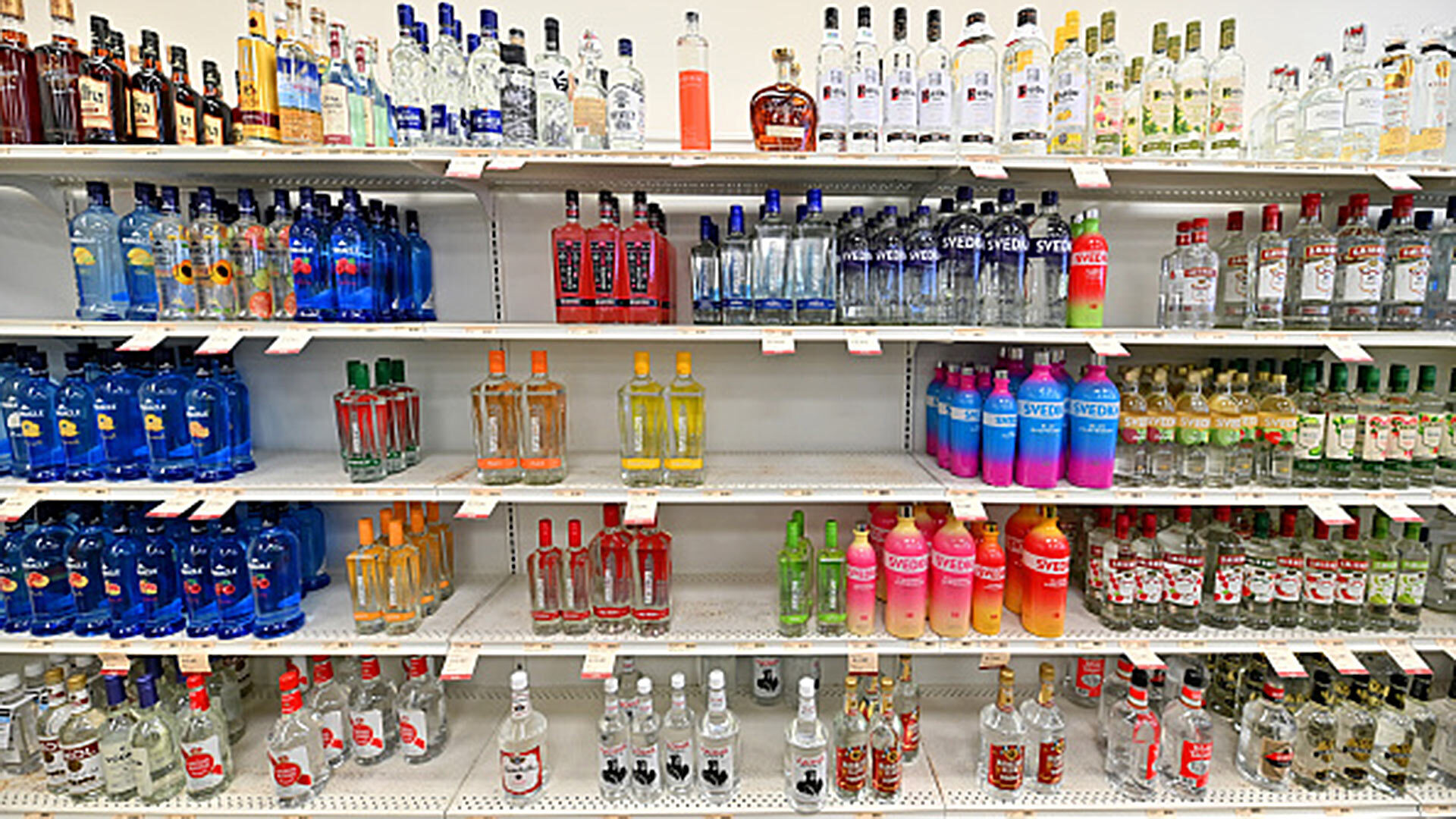
Photo by Aimee Dilger/SOPA Images/LightRocket via Getty Images
Bars are putting the Moscow Mule out to pasture and welcoming its Kyiv cousin while pouring Russian spirits down the drain.
Is this a good way for party people to oppose a brutal invasion—or are we just turning the page back nearly 20 years to the cringe-y days of “freedom fries?” That was the oft-lampooned staple side dish renamed by congressional cafeterias in response to France’s opposition to the 2003 Iraq war.
But alongside the spurned bottles of Stoli—theatrics that Maryland Smith experts say are unlikely to have much effect—are more serious moves to clamp down on Russia’s international financial options. On March 8, the White House announced a ban on oil imports from the country, a move considered one of its most significant so far in response to Russia’s invasion of Ukraine. That could make a difference in President Vladimir Putin’s policies, but could also have unintended consequences.
Amna Kirmani, the Ralph J. Tyser professor of marketing, and Kislaya Prasad, research professor and academic director in the Center for Global Business, both in UMD’s Robert H. Smith School of Business, shared their thoughts with Maryland Today on what’s at stake as the United States and world ratchet up embargoes and sanctions for the invasion of Ukraine.
For many businesses, a ban on Russian goods is almost entirely symbolic—but might be shrewd marketing.
For small, independent restaurants or shops, pulling Russian vodka from the shelves isn’t going to make much of a difference in anyone’s bottom line—or in international politics. But businesses that boycott Russian goods “get to take a stand which presumably most people in the U.S. agree with, and also capitalize on consumer sentiment against a particular set of products,” says Kirmani.
A broad refusal by major corporations and conglomerates to deal with Russia, though, may induce financial stress that could filter up through the levels of power in Moscow, she says.
Major boycotts and embargoes have mixed success, especially in autocrat-led countries.
Prasad points to Cuba as a country where, for decades, embargoes were unable to effect a change in leadership. For a leader like Putin, the economic struggles of ordinary Russians may not be enough to deter him. “This is sort of a survival issue with Putin—I think he views it that way and is willing to inflict quite a bit of pain on Russian people economically for that,” says Prasad. In South Africa, on the other hand, economic sanctions and boycotts played a role — even if a supporting one — in ending apartheid.
Halting Russian oil imports won’t hurt just Russia.
Just 3% of oil in the U.S. comes from Russia, but fears of a tightening supply drove up prices more than 10% in the past week. With the United States’ ban yesterday on Russian oil and, more critically, the European Union’s severe restriction on imports, much of the world has had to turn to other, more expensive sources of crude oil—the result of which we’re seeing at the gas station. “Several of the past few recessions have all come about after huge rises in energy prices,” says Prasad. “That, I suspect, will be the biggest risk.”
The global financial system is where Putin will feel the pain.
The exclusion of Russia from the international monetary structure is perhaps the most powerful economic tool at other countries’ disposal, Prasad says. Now that the U.S. and the European Union have cut off seven Russian banks from SWIFT, the secure system that eases international transactions, the Russian economy is likely to suffer. “The international global trade works on very smooth transactions,” says Prasad. “It makes it difficult for Russians to sell anything because it creates the problem of, how are they going to get paid?”
–This article originally appeared in Maryland Today.
Media Contact
Greg Muraski
Media Relations Manager
301-405-5283
301-892-0973 Mobile
gmuraski@umd.edu
Get Smith Brain Trust Delivered To Your Inbox Every Week
Business moves fast in the 21st century. Stay one step ahead with bite-sized business insights from the Smith School's world-class faculty.